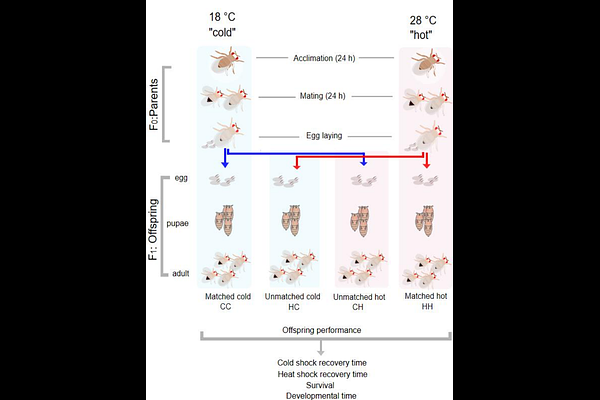Temperature-modulated maternal effects vary with offspring developmental stage in Drosophila melanogaster

Temperature-modulated maternal effects vary with offspring developmental stage in Drosophila melanogaster
Kohlmeier, P.; van Schaik, B.; Pen, I.; Billeter, J.-C.; Groothuis, T. G.
AbstractAn organisms phenotype has the potential to vary in response to environmental factors, allowing it to adjust to environmental fluctuations. Maternal effects on offspring phenotypes have been recognized as important contributors to this phenotypic plasticity, although the extent and duration of this contribution remain elusive. At more advanced developmental stages, offspring may be able to assess their current environment more accurately than at earlier developmental stages, and therefore their reliance on maternal effects may decline over time. This study investigates how the magnitude and direction of maternal effects change between early and late development using the fruit fly Drosophila melanogaster as a model. We employed a split brood design to disentangle the effects of maternal ambient temperature from the effects of offspring ambient temperature at the larval vs. the pupal or early adulthood stage. We subsequently measured offspring phenotypes such as heat shock and cold shock recovery times, survival, and developmental time. Maternal effects on these traits were often substantial during early offspring development, but these effects either diminished in magnitude or even changed direction as development progressed. In conclusion, our study reveals a dynamic shift in the magnitude and direction of maternal effects on offspring phenotypes in D. melanogaster, highlighting the interplay between maternal influence and offspring developmental stage in shaping adaptive responses to environmental variation.